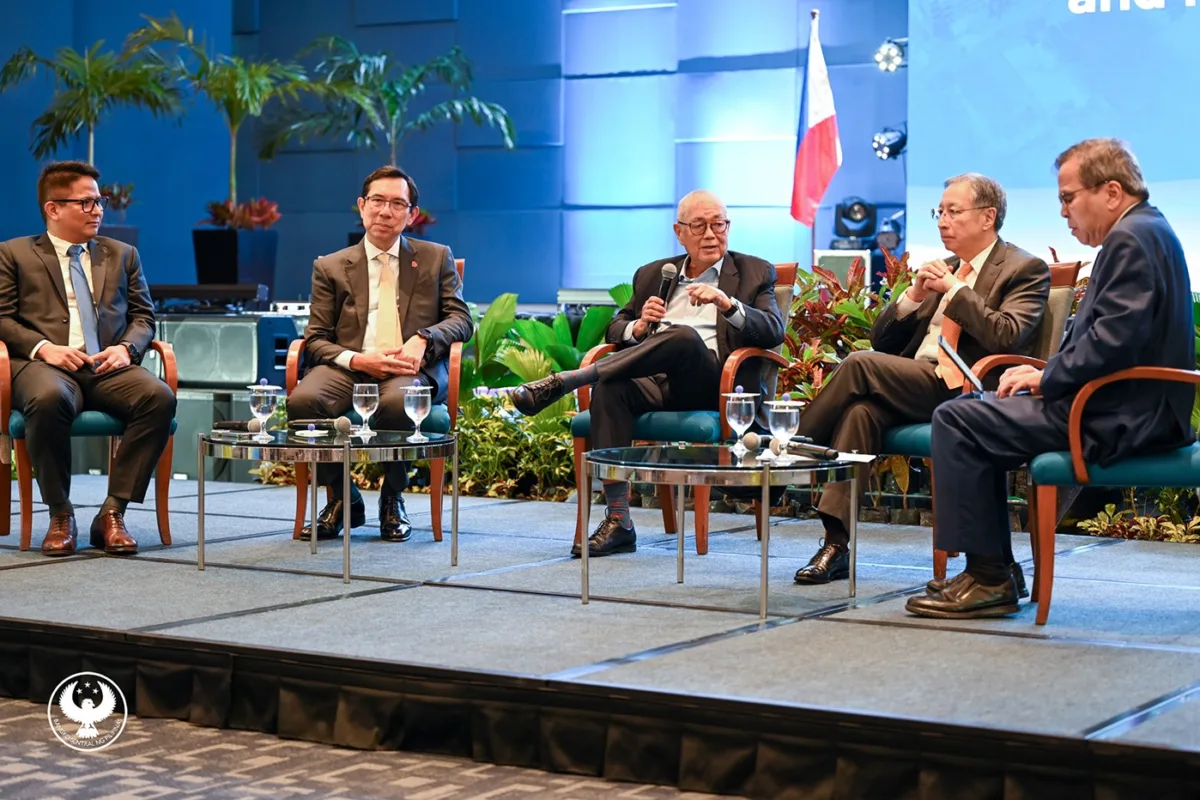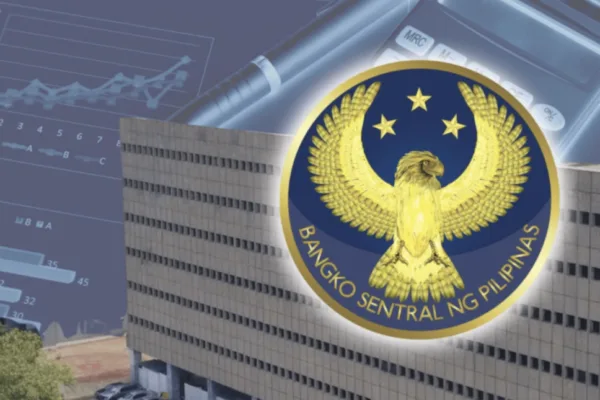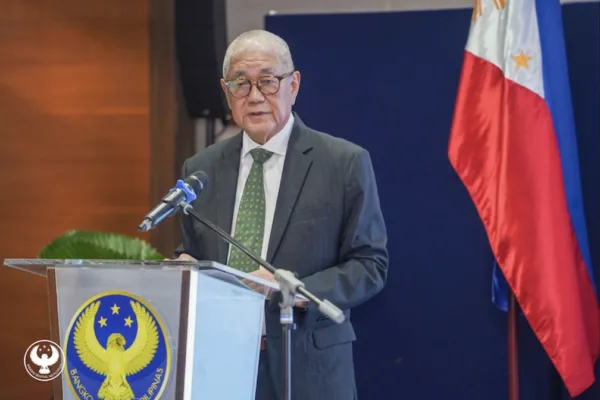The Philippines’ top financial regulators are stepping up efforts to deepen risk monitoring and strengthen the country’s defenses against systemic shocks, as the Financial Stability Coordination Council (FSCC) outlines its 2026 priorities and the Bangko Sentral ng Pilipinas (BSP) readies the launch of a new book chronicling key financial crises that shaped the local financial system.
During its 43rd Executive Committee Meeting on November 5, the FSCC identified the comprehensive mapping of corporate linkages as a flagship initiative for 2026. The council said the effort will help regulators better understand contagion channels, detect potential stress points, and respond to emerging vulnerabilities with greater precision.
To complement the mapping exercise, the FSCC is also developing an interagency coordinated response protocol designed to ensure regulators act swiftly and cohesively in the event of systemic disruptions.
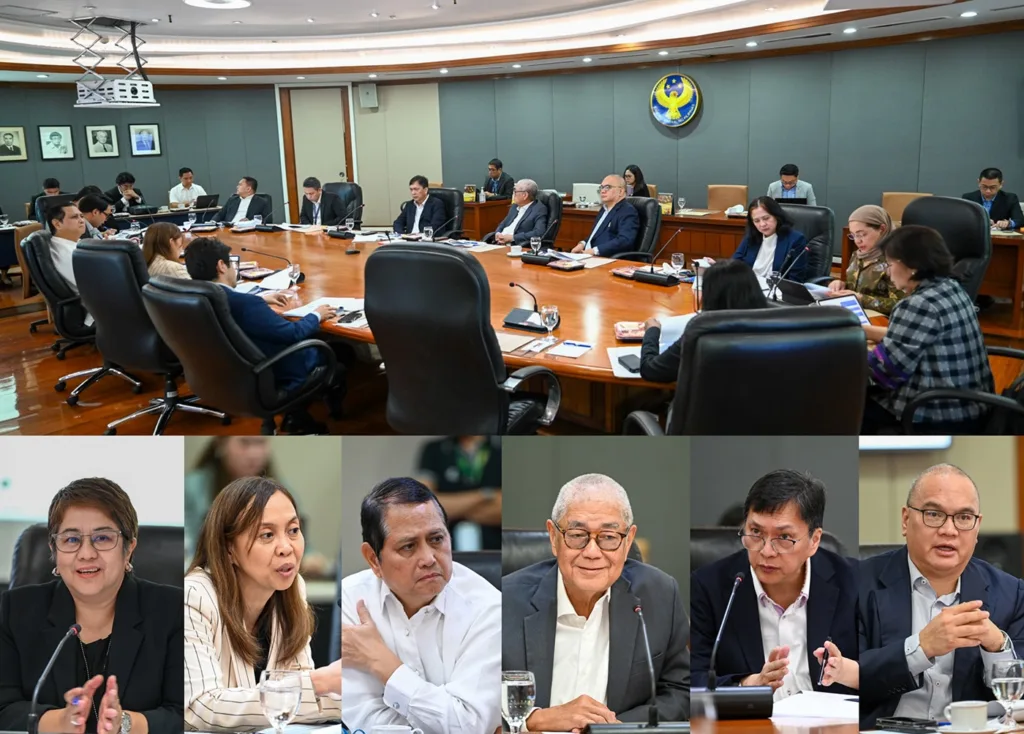
Photo above shows the FSCC meeting presided by FSCC Chairman and Governor Eli M. Remolona, Jr. (lower photo, fourth from left). With him are BSP Assistant Governor Veronica B. Bayangos, PH Treasurer Sharon P. Almanza, PDIC President Roberto B. Tan, Insurance Commissioner Reynaldo A. Regalado, and SEC Officer-in-Charge Javey Paul D. Francisco.
“The FSCC’s top priority is to stay ahead of emerging risks and respond as one cohesive front,” said FSCC Chairman and BSP Governor Eli M. Remolona, Jr. He added that enhanced system-wide monitoring will strengthen the country’s ability to safeguard financial stability.
The council noted that Philippine banks continue to demonstrate resilience, supported by strong capital positions, healthy liquidity buffers, and robust loss provisioning. Stress test results show that post-shock capital adequacy ratios remain above regulatory thresholds.
However, the FSCC flagged the growing interconnectedness between the financial system and non-financial corporations — driven by housing market trends, rising leverage, and changes in household and corporate balance sheets. To further support market development, the council is also pushing for a standardized bond pricing convention and refinements to open market operations.
BSP to publish new book on lessons from major crises
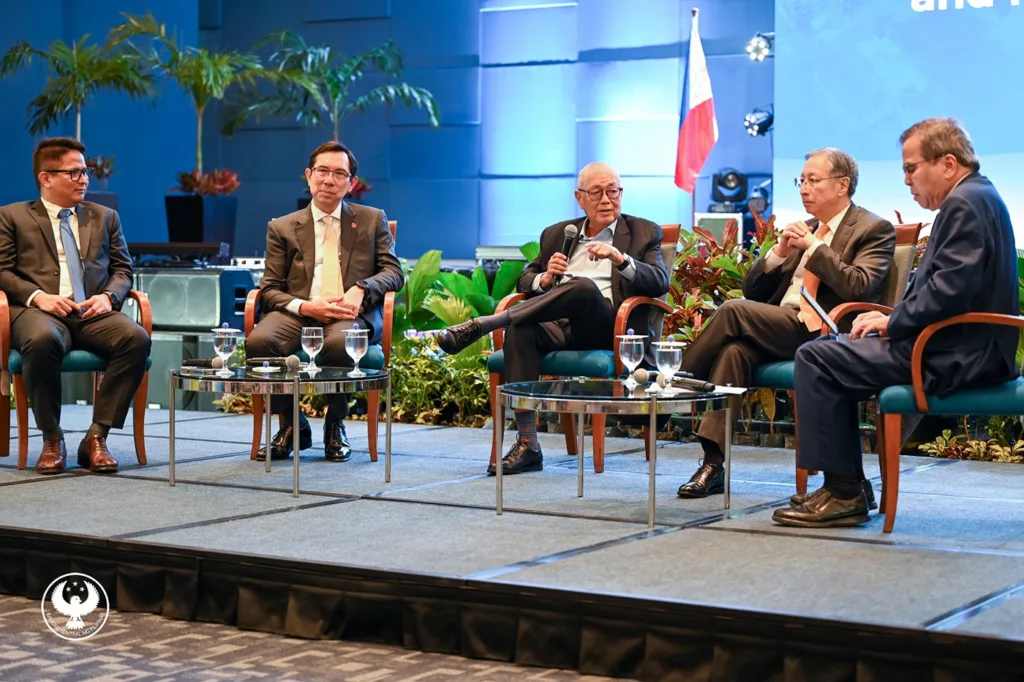
BSP Governor Eli M. Remolona, Jr. (center) leads the discussion of risk and resilience in the Philippine financial system during a forum at the BSP head office in Manila. With him are (from left:) Oscar Enrico Reyes, Jr., Jose Teodoro K. Limcaoco, and Nestor V. Tan, presidents of G-Xchange, Inc., BPI, and BDO Unibank, Inc., respectively; and BSP Book Project Editor Ramon Moreno.
Parallel to the FSCC’s forward-looking agenda, the BSP is finalizing a new book titled “Risk and Resilience in the Philippine Financial System: How Much Has Changed?”, set for release next year.
The book documents the evolution of the Philippine financial system through the lens of major crises, including the 1997 Asian Financial Crisis, the 2008–2009 Global Financial Crisis, and the COVID-19 pandemic. It also traces the policy reforms that reshaped the financial landscape — from the passage of the 1993 New Central Bank Act to the BSP’s later adoption of risk-based supervision under the Basel Accords and the creation of the FSCC itself.
At a closing conference, Governor Remolona said the firsthand accounts captured in the book will help future policymakers and market participants respond better to looming shocks. “The narrative from those who were on the ground helps us understand past crises and prepare for the next one,” he noted.
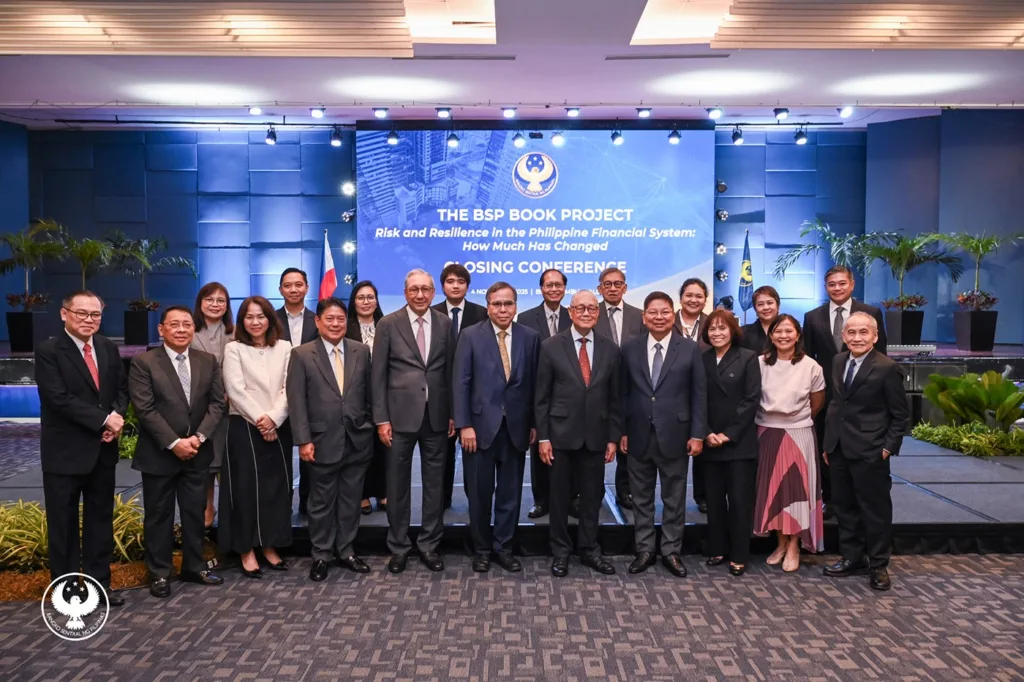
Photo shows Former BSP Governor and current SM Investments Corporation Chair Amando M. Tetangco, Jr. (front row, 8th from left) together with BSP Book Project Editor Ramon Moreno (4th from left) and other executives of the BSP led by Gov. Remolona Jr.
Former BSP Governor Amando M. Tetangco, Jr., who served the central bank for over four decades, said every crisis compelled regulators to “reflect, reform, and rebuild” — a cycle that strengthened the foundations of the modern financial system.
The conference brought together BSP leaders, academics, former policymakers, and industry executives, including members of the Monetary Board and senior officials from major banks, research institutions, and the book’s editorial team.
A dual push for insight and preparedness
With the FSCC setting new systemic risk priorities and the BSP preparing to release a comprehensive chronicle of financial crises and reforms, regulators are signaling a dual commitment: leveraging historical insights while proactively addressing emerging risks.
The FSCC, composed of the BSP, Department of Finance, Securities and Exchange Commission, Insurance Commission, and Philippine Deposit Insurance Corporation, will continue to lead efforts to monitor and mitigate vulnerabilities across the financial ecosystem.




